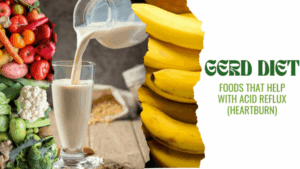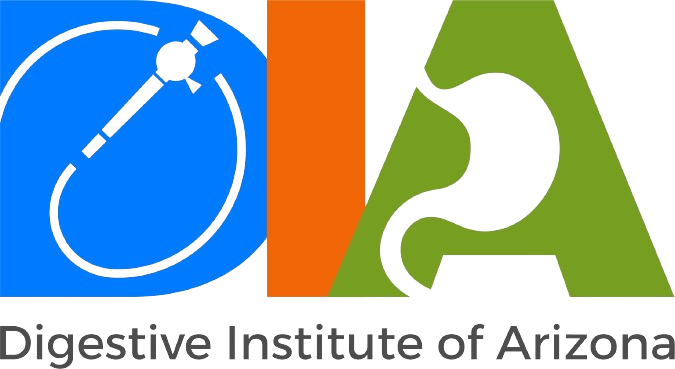
How to Manage Acid Reflux with the Right Eating Habits?
November 23, 2024
Acid reflux or gastroesophageal reflux disease is a condition where the acid in the stomach flows back to the esophagus, which may also cause Barrett’s esophagus. As a result, the individual suffers from heartburn, pain in the chest, and other similar symptoms. There is medication for acid reflux, but some acid reflux diet tips have proven to be very helpful in restricting or managing GERD symptoms.
Understanding Acid Reflux and Diet
Diet manipulation is the most effective way to control acid reflux. By learning which foods and drinks trigger symptoms, you can curb the effects of acid reflux. Common culprits include:
- Fatty foods: High-fat-content food products such as deep-fried, greasy food and fatty meat are known to cause excessive relaxation of the lower esophageal sphincter (LES); LES is the muscle that prevents the stomach content from passing into the esophagus. This may result in acid reflux.
- Spicy ingredients: Spicy foods such as peppers, chili powder, and other spices could lead to lesions in the esophageal mucosal membrane, increasing the chances of acid reflux or extending the duration of pain.
- Acidic foods: Acidic foods like citrus fruits, tomatoes, or vinegar sauces seem to invoke an increased secretion of hydrochloric acid in the stomach and have been known to be among the enemies of GERD.
- Alcohol: The lower esophageal sphincter has been reported to serve as a softening agent. If alcohol intake becomes excessive, the functioning of the LES may diminish. This can account for acid reflux in addition to causing injuries to the esophageal mucosa.
- Caffeine: Caffeine, present in coffee, tea, and sodas, is a well-known stomach acid stimulant that can result in a worsening of acid reflux symptoms.
- Mint: Mints, such as peppermint and spearmint, can cause relaxation of the lower esophageal sphincter. Gastric acid reflux into the esophagus may be facilitated by this.
Visit the best gastroenterologists in Phoenix, Arizona, to get treatment for Acid Reflux. Book Your Appointment Now!
GERD Diet: Top 10 Tips for Managing Acid Reflux

Here are some practical tips to help you manage acid reflux through changing your diet:
- Consume more small meals: Consume five or six smaller meals throughout the day rather than having three larger ones, which is stressful on the stomach. Having frequent smaller meals can restrict the amount of gastric acids that can be produced at any particular moment, making acid reflux a less probable occurrence.
- Avoid Trigger Foods: Trigger foods should be avoided in case of acid reflux. Some examples of trigger foods usually include blackened hot and sour foods and greasy fried foods. One can maintain a food diary to help track trigger foods consumed.
- Healthy Cooking: Griddling and baking, or broiling is healthier than frying, as frying tends to increase fat in one’s diet. These methods can help control fat consumption, considered one of the common factors that aggravate acid reflux.
- Low-Acid Foods: Acidic fruits and vegetables should be avoided, and low-acidic foods should be embraced such as bananas, melons, cucumber, and even green veggies. These foods are gentle on the stomach and do not encourage acid secretion.
- Avoid excessive caffeine and alcohol: Coffee, tea, and alcohol are caffeinated, and these substances can cause relaxation of the lower esophageal sphincter and hence increase the chances of acid reflux. Thus, it may be best to limit the consumption of these products to alleviate acid reflux symptoms.
- Watch Your Portion Sizes: Even healthy portions can be the source of pressure in the stomach, hence perpetuating the reflux of acid from the stomach. Be sure to eat in moderation.
- Eat Slowly and Mindfully: Consume your food leisurely and savor each bite: chew slowly, swallowing little and often. This enables proper digestion of your food and minimizes the chances of overeating, exacerbating acid reflux.
- Elevate Your Head While Sleeping: Individuals suffering from acid reflux while asleep should consider using pillows to position their heads higher than their bodies. Greater head elevation helps prevent stomach acids from refluxing into the esophagus.
- Lose Weight If Necessary: The area around the waist tends to carry most of the weight, producing a bulge that may add greater pressure on the stomach, thus making an acid reflux episode worse. For those who are overweight, it can be optimal to work to lose weight to relieve the additional stress on the abdomen.
- Hydration: Consuming a sufficient amount of water throughout the day aids in the digestive process. Diluting the acid content in the stomach with water can alleviate symptoms of acid reflux.
How to Manage Acid Reflux with the Right Eating Habits?
Acid reflux, often marked by heartburn and indigestion, can be significantly improved by making mindful changes to your eating habits. Start by eating smaller, more frequent meals instead of heavy portions, which can overload your stomach and push acid upward. Avoid trigger foods like spicy dishes, caffeine, chocolate, citrus, and fried or fatty foods. Chew slowly, stay upright after meals, and avoid eating close to bedtime. Incorporating reflux-friendly options such as oatmeal, bananas, ginger, and leafy greens can help soothe your digestive system and reduce symptoms. By consistently following these habits, you can manage acid reflux more effectively without solely relying on medication.
Additional Tips for Managing Acid Reflux
- Stress Management: Stress can worsen acid reflux symptoms because it increases the production of stomach acid. Many relaxation techniques, including yoga, meditation, and deep breath exercises, can help reduce symptoms by releasing a person from stress.
- Exercise Regularly: Regular physical exercise ensures a healthy body weight and proper digestion, all of which help regulate acid reflux. Low-intensity exercises are recommended since high-intensity exercises can often precipitate symptoms.
- Consult a Healthcare Professional: If your acid reflux symptoms persist or worsen despite lifestyle changes, it is advisable to consult a gastroenterologist. They can diagnose you properly and recommend appropriate treatments, including medication or other interventions.
Conclusion
Controlling acid reflux involves avoiding certain foods and maintaining a balanced GERD diet and lifestyle to keep the symptoms in check. Conscious and intelligent choices can lead to making GERD-friendly food choices that improve digestion and reduce discomfort.
You can find more resources and support by enrolling at Digestive Institute of Arizona, a gastroenterology clinic in Phoenix, AZ, where experts help individuals suffering from digestive health issues, such as acid reflux. At DIA, you can find tips from the experts on nutrition in gastroenterology, including personal meal plans and health advice. You will surely be able to manage your GERD if you have the necessary information and resources.
FAQs:
Q1. Am I allergic to spicy foods if I have acid reflux?
Ans: Despite spicy foods being one of the most frequent causes of acid reflux, you should still be able to tolerate them in limited amounts. Begin by using different spices and monitoring your reactions to those spices. If your symptoms worsen with regular consumption of spicy foods, stop them.
Q2. Is there such a thing as a ‘milk cure’ for acid reflux?
Ans: While consuming milk might offer instant relief from heartburn, it aggravates acid reflux in the long run. Milk can stimulate the stomach’s acids, exacerbating acid reflux symptoms.
Q3. Can I take chocolate if I have acid reflux?
Ans: Chocolate tends to cause acid reflux because it is full of fats and caffeine. If you suffer from acid reflux, the best thing is to restrict your chocolate consumption.
- Are waffles good for acid reflux?Waffles, especially those made from refined flour and topped with butter or sugary syrups, are not ideal for acid reflux as they can be heavy and trigger symptoms. However, waffles made from whole-grain or gluten-free flour with low-fat toppings like fresh fruit or a small amount of honey may be a better option for individuals with acid reflux.
- What is a good breakfast for acid reflux?A good breakfast for acid reflux includes low-acid, high-fiber, and low-fat options. Foods like oatmeal, whole-grain toast, non-citrus fruits (bananas, apples, melons), and lean proteins (scrambled egg whites, turkey) are excellent choices. Avoid acidic drinks like orange juice and opt for herbal tea or water instead.
- Is Quaker Oats good for acid reflux?Yes, Quaker Oats or plain oatmeal is one of the best foods for acid reflux. It is high in fiber and absorbs stomach acid, which can help reduce symptoms. Pairing it with non-acidic toppings like bananas or almond milk enhances its benefits without triggering reflux. Avoid adding butter or full-fat milk, which can worsen symptoms.
- Are pancakes OK for acid reflux?Pancakes can be okay for acid reflux if prepared with whole-grain flour and served without high-fat or sugary toppings like butter or syrup. Opt for low-fat versions and add non-citrus fruits like blueberries or a drizzle of maple syrup in moderation. Avoid rich, heavy toppings to prevent triggering acid reflux symptoms.
- What foods neutralize stomach acid immediately?While not immediate neutralizers, bananas, melons, oatmeal, and low-fat milk may offer quick, temporary relief from stomach acid. However, consistent diet changes like avoiding fatty, spicy, acidic foods, caffeine, alcohol, mint, smaller meals, and lifestyle adjustments are key for managing acid reflux long-term.
